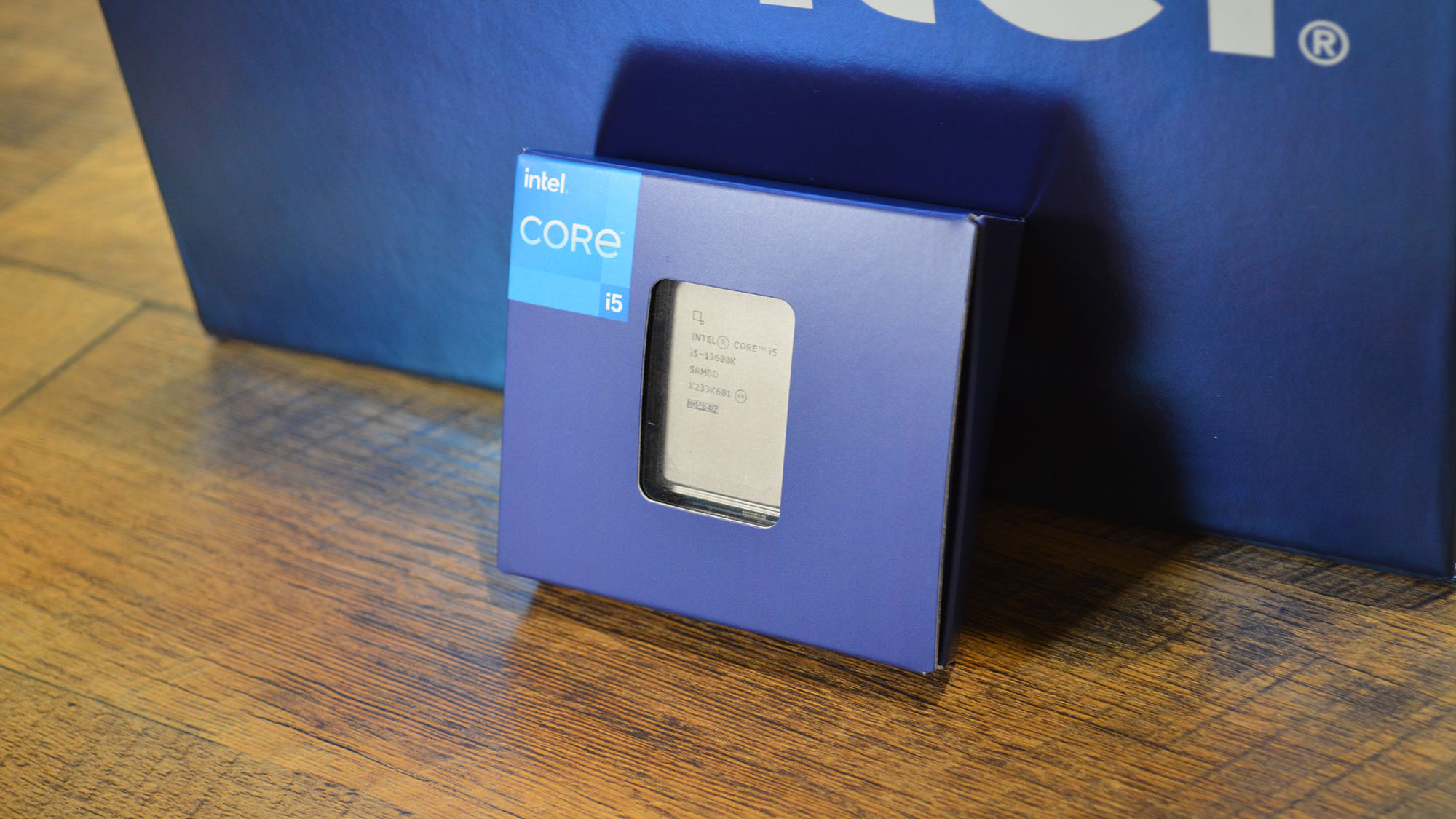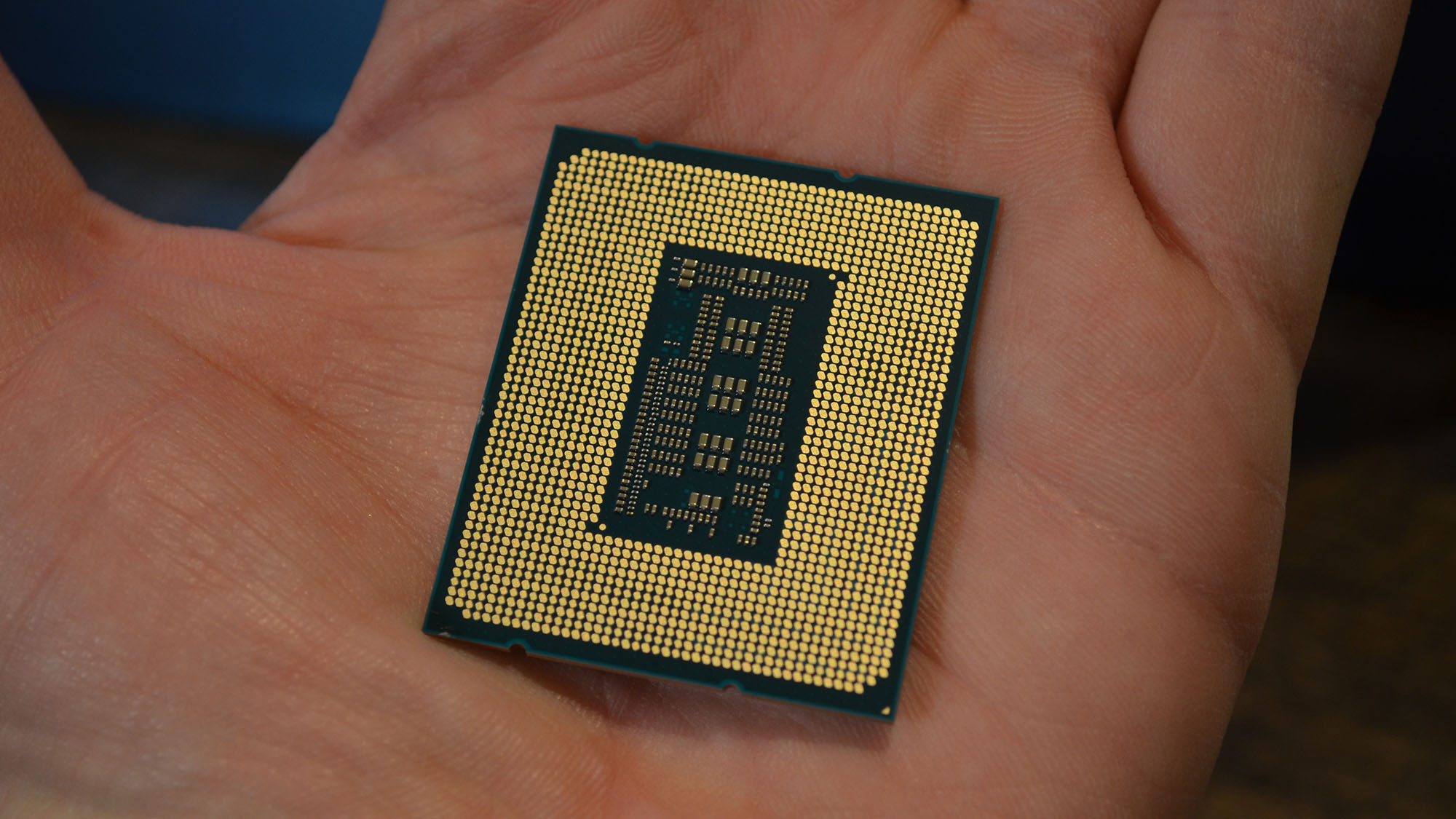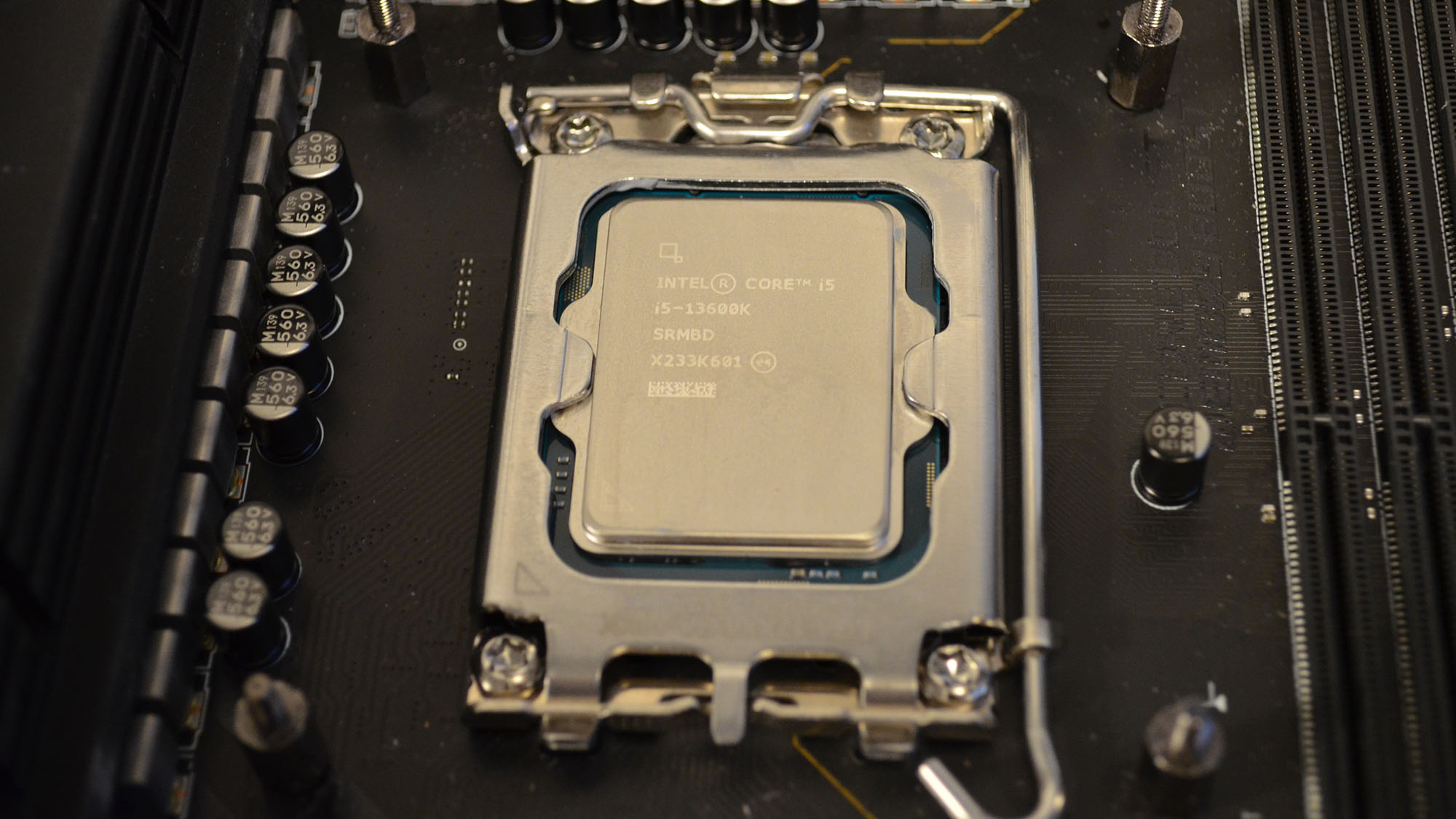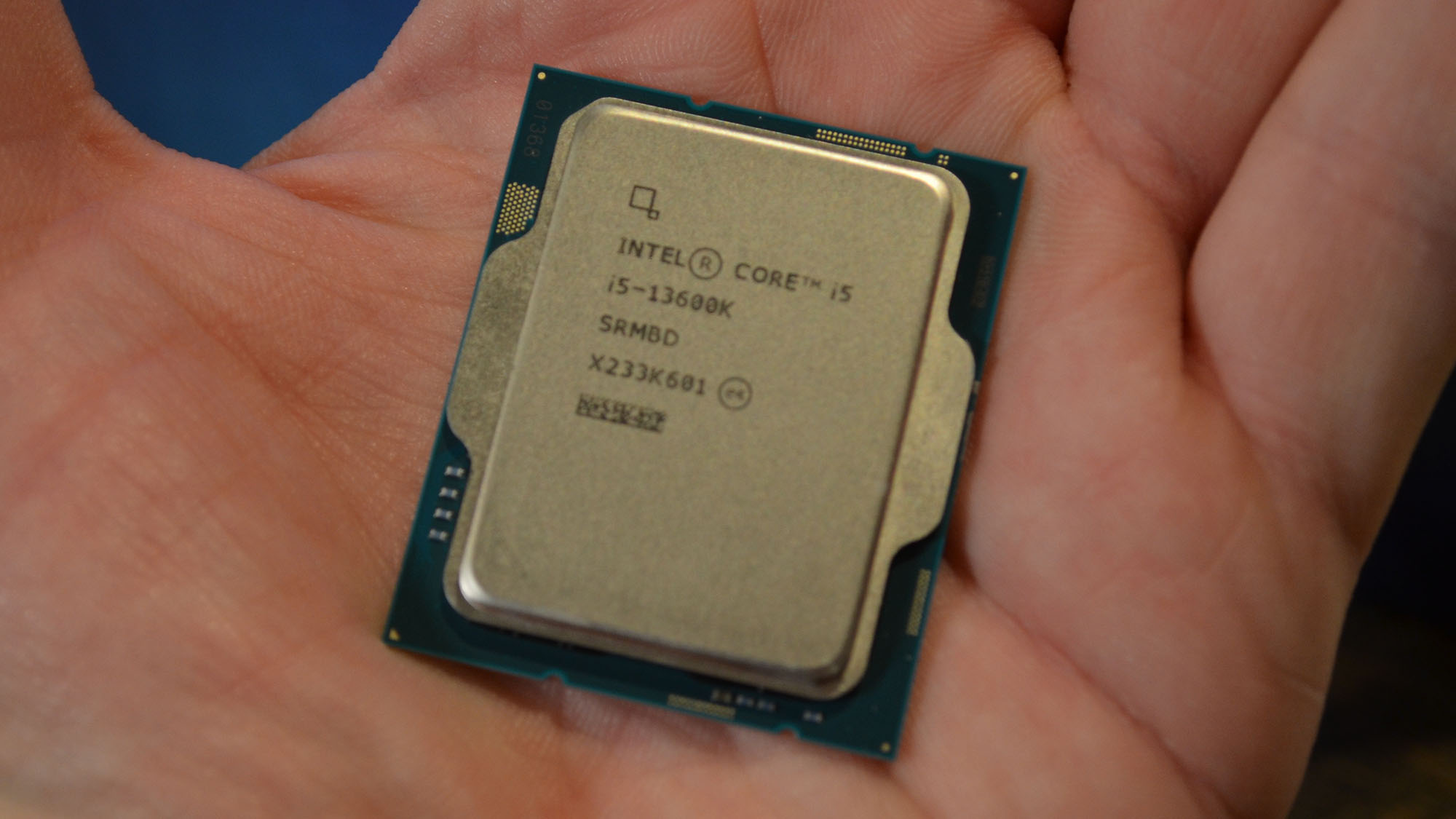Intel Core i5-13600K: the best everyday CPU around
Intel Core i5-13600K: Two-minute review
The Intel Core i5-13600K follows up one of the top budget chips ever and manages to improve on just about everything across the board, except for the price.
When Intel announced its Raptor Lake processors, a lot of us were a bit dismayed that the price of the Core i5 went up by nearly 15% over the Intel Core i5-12600K that preceded it. That chip was arguably the best processor ever made for budget gaming PCs and those who need good performance without a whole lot of extras at a fair price.
At $329 (about £280 / AU$475), the Intel Core i5-13600K puts itself just outside of the budget class of processors. And that's a shame because otherwise, this is the best processor for the vast majority of people and even for a lot of those who tell themselves that they absolutely must have something more powerful like the Intel Core i7-13700K.
Across the general lineup of performance tests I threw at this chip, it pretty much came out on top in every one of them, beating out the competing AMD Ryzen 5 7600X and substantially outperforming the Core i5-12600K. Getting into the nitty-gritty, the Ryzen 5 7600X puts up a much better fight against the i5-13600K than I was expecting, beating the 13600K to a rough draw by the end.
That does mean that if you're looking for a budget gaming CPU, you're probably going to be better off with the Ryzen 5 7600X since you can save a bit of money in the process. But that savings can easily be gobbled up and then some by the extra cost to upgrade to DDR5 RAM, which the i5-13600K still lets you skip in favor of the aging DDR4 RAM that most people still have. So there is definitely a trade-off to be made in either case.
Ultimately though, there's just no denying that the Intel Core i5-13600K has better specs and performance at this price range, give or take a little spare change. So this is a very easy processor to recommend to just about anybody who isn't a gamer or creative professional.
Intel Core i5-13600K: Price & availability

- MSRP: $329 (about £280 / AU$475)
- More expensive than competing Ryzen 5 7600X
The Intel Core i5-13600K is on sale now for $329 (about £280 / AU$475). This puts it at about 10% more expensive than the competing AMD Ryzen 5 7600X and about 14% more expensive than the Core i5-12600K.
Considering that the Intel Core i9-13900K didn't get a price increase over its 12th-gen counterpart, the price hike here is probably the biggest disappointment with this chip. Enthusiast users are used to spending the extra money to have the best right out the gate, so they could absorb some of the price inflation rather than let it fall squarely on the one chip that most people are going to use.
This is especially bad considering that AMD's competing chip is right there for a good bit less. There are performance considerations here, obviously, and we'll get to those soon. Still, at this level, the performance difference is not so great as to really justify taking the best Intel processor in the budget class and pushing it into the lower mid-range for a few extra bucks.
- Price score: 3.5 / 5
Intel Core i5-13600K: Chipset & features

- Overclockable
- Supports DDR4 and DDR5
The Intel Core i5-13600K is Intel's second-gen big.LITTLE mainstream processor, following up the i5-12600K, and there have been some big improvements on the architecture side.
These are the systems I used to test desktop CPU performance for both AMD and Intel systems in this review:
CPU Cooler: Cougar Poseidon GT 360 AIO
Graphics card: Nvidia GeForce RTX 4090
SSD: Samsung 980 Pro SSD @ 1TB
Power Supply: Corsair AX1000 80-Plus Titanium (1000W)
Case: Praxis Wetbench
Intel motherboard and RAM:
Motherboard: MSI MPG Z690 Carbon Wifi
DDR5 RAM: 32GB Corsair Dominator Platinum @ 5,200MHz & 32GB Kingston Fury Beast @ 5,200MHz
AMD motherboard and RAM:
Motherboard: ASRock X670E Taichi
DDR5 RAM: 32GB Corsair Dominator Platinum @ 5,200MHz & 32GB G.Skill Trident Z5 Neo @ 5,200MHz
While Intel Meteor Lake chips still use the same 10nm "Intel 7" process as the previous 12th-gen Alder Lake chips, the 13th-gen chips improve on the previous architecture in a number of key ways.
In addition to more cache memory, there have been some improved clock speeds on the high-end, so that the i5-13600K runs slightly slower at base frequency while boosts slightly higher than the 12600K — though both Intel chips have a lower base and boost frequency than the competing AMD Ryzen 5 7600X.
In terms of core counts, the i5-13600K doubles the efficiency cores over the i5-12600K, for a total of 14 cores and 20 threads to the i5-12600K's 10 cores and 16 thread. This is also substantially more than the Ryzen 5 7600X, which is a straight six-core/12-thread chip with all its cores being full-power performance cores.
And while the rated 125W TDP for the i5-13600K remains the same as with the 12600K, it pulls substantially more power under load than its predecessor in my tests, so plan your build accordingly.
Finally, like its predecessor, the Core i5-13600K supports both PCIe 5.0 and DDR4 and DDR5 RAM, so you can either upgrade to new DDR5 RAM or stick with the best RAM of the DDR4 generation, which definitely helps defray the cost of an upgrade.
- Chipset & features score: 4 / 5
Intel Core i5-13600K: Performance

- Fantastic all around performance
- Decent gaming chip
- Low performance per watt rating
The Intel Core i5-13600K is the best processor all-around for most people right now, though that does come with a number of caveats.
Generally, the Core i5-13600K outperforms both the Core i5-12600K and Ryzen 5 7600X by a substantial amount, and while the Ryzen 5 7600X holds its own against the i5-13600K, it's a qualified success rather than a straightforward win.
When it comes to synthetic performance, the Intel Core i5-13600K simply overpowers both chips with a larger number of cores, faster clocks, and raw power wattage. Overall, the Core i5-13600K performs about 42% better than the Ryzen 5 7600X and about 26% better than the Core i5-12600K.
In creative workloads, the Core i5-13600K is a great option for folks on a budget who want to dabble in some creative work like 3D rendering or photo editing. But with only six performance cores, using the best graphics card possible will be far more determinative in most cases. That said, the Core i5-13600K outperforms the Ryzen 5 7600X by about 21% and the 12600K by about 12%.
In my gaming performance tests, the Ryzen 5 7600X actually scores a technical win here, chalking up an extra 2 fps on average over the 13600K, but this might as well be a wash. The 13600K does manage a very solid improvement over its predecessor though, getting as much as 34% higher fps, but landing a solid 20% average performance improvement.
In the end, the Core i5-13600K outperforms the Ryzen 5 7600X by about 40%, while improving on the Core i5-12600K's performance by about 25%. As far as bottom line results go, this would make this processor a slam dunk, but one thing keeps this chip from true greatness: its power consumption.
While the 13600K has the lowest minimum power draw of the three chips tested with 1.973W (an 18% lower power consumption than the 12600K's minimum of 2.415W), it also maxes out at an astonishing 204.634W, which is about 83% more power to achieve a roughly 40% better performance.
This chip also draws 65% more power than the Core i5-12600K for a roughly 25% better performance. These are hardly signs of efficiency, and it continues the exact wrong trend we saw with Intel Alder Lake. For comparison, the AMD Ryzen 9 7950X has a max power draw of 211.483W, and its 3D V-Cache variant has an incredibly tight 136.414W power draw in my AMD Ryzen 9 7950X3D review.
So yeah, it's not hard to put up the kind of numbers that the Core i5-13600K does when Intel turns the electron firehose to full on its processor. Considering how this is the ideal chip for a budget build, that build will now have to factor in a bigger PSU than it should account for a burst of power demand from a chip "rated" for 125W.
Is this a dealbreaker? Not yet, but if Intel thinks it can keep the top spot by just keeping its foot on the gas while AMD is making real investments in power efficiency within a single generation of processors, this won't be good for Intel in the long run.
- Performance: 4 / 5
Should you buy the Intel Core i5-13600K?

Buy it if...
Don't buy it if...
Also Consider
If my Intel Core i5-13600K review has you considering other options, here are two processors to consider...
How I tested the Intel Core i5-13600K
- I spent nearly two weeks testing the Intel Core i5-13600K
- I ran comparable benchmarks between this chip and rival processors
- I gamed with this chip for several days
I spent an extensive amount of time testing the Core i5-13600K over the past two weeks, including using the processor in my primary work and gaming machine at home.
In addition to general work tasks and gaming, I used the processor extensively for content creation work like Adobe Photoshop, Adobe Illustrator, and Blender 3D modeling.
I also ran an extensive battery of benchmark tests on this chip and rival CPUs a customer might consider, using as close to identical hardware as possible in order to gather sufficient comparable data to determine how the chips performed in real-life and simulated workloads.
First reviewed May 2023
0 comments:
Post a Comment